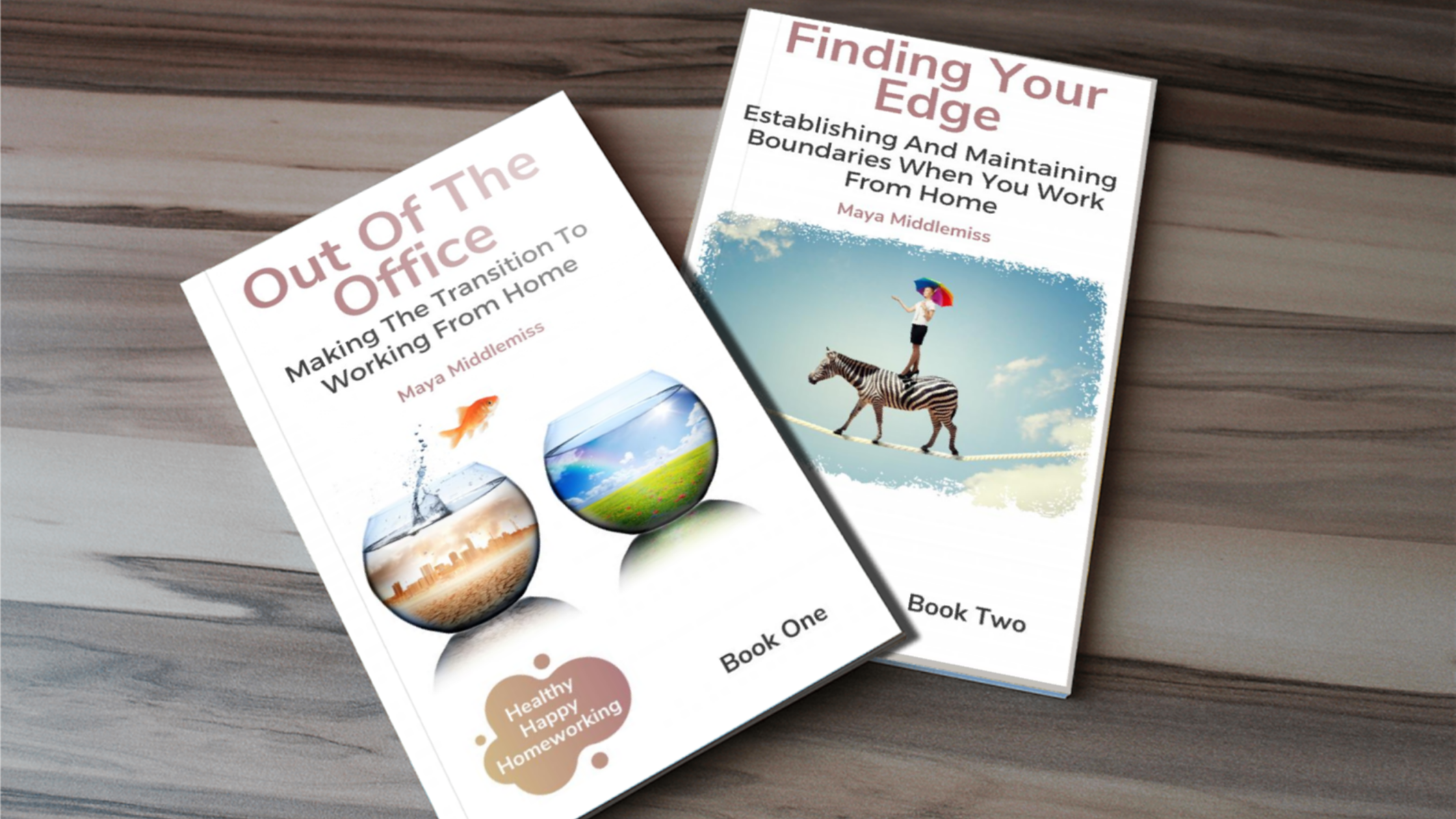Remote working. It’s been a hot topic since the pandemic. According to the Office of National Statistics, figures show that almost half of those successfully working from home spend less. For us at Podengo Market Research, this is just one of the many perks of working remotely. No commute or tempting options to buy lunch out means when we sit down to work, that’s precisely what we do.
When the time came to return to work, some were happy to see their co-workers. Others had found a rhythm and weren’t best pleased to go back to a system that wasn’t serving them. In this blog, we speak to writer and journalist Maya Middlemiss of Healthy Happy Homeworking to get her take on the ever-changing work-life current.
Hi Maya, and thank you for joining us today. Please can you introduce yourself and what you do to our readers?
I’m a freelance writer, consultant and journalist. For the last few years, most of what I write about has been around working from home, remote teams and the future of working in general. Remote work used to be something that people had to request or even plead for; it tended to be very motivated. Now, of course, the whole world’s had a taste of working from home. So, we created Happy Healthy Homeworking. I started writing a book series, and it turned into a community.
Whether as entrepreneurs, freelancers or the people who now have to decide about, ‘What do I want long term?’ Maybe the office is opening up; there’s encouragement, or perhaps more than encouragement, to come back to it. Not everybody wants that. It’s time now for people to think about what they want out of life and work, so I’m trying to add the most value and help people with those decisions.
What would you say to anybody encouraged to return to work and who doesn’t want to?
If they’re being encouraged to go back to an office they don’t feel safe in, I think it’s essential to be explicit about that, and there could be lots of reasons you don’t feel safe. Some of those are your employer’s business, and some aren’t.
You might simply want a different lifestyle. I would suggest making what you’ve accomplished over the past two years part of that conversation because there are so many ways you can do flexibility. Whether that means coming to the office sometimes, it might mean coming at different hours if you’re trying to avoid a crowded commute. It might mean making a demonstrable business case as a 100% remote worker. You’ve done it, you’ve got that on record, and you’ve managed to do it probably in challenging circumstances.
Is there a right to state that you want to work from home?
It’s very much a moving target, and it depends where you’re located, where your employer is located, and I’m not an employment law expert, so I’m not going to try and get a quote on that.
Have a good look at your employment contract and see what you’re being hired for. Look at all that documentation you need to, but before you go into contractual things, try and have a human to human conversation. If you’ve got key performance indicators, discuss how you can meet those without physically being in a particular place.
It could well be that there are loads of ways you can deliver results without having to be somewhere specific. For an awful lot of us knowledge workers, even when people were routinely going to an office and sitting next to other people, probably 90% of the work we’re doing is online anyway.
How do you think remote working will shape the future careers of young people?
I think it’s early days and it’s going to be interesting to see how this unfolds. Many younger people have struggled during lockdown because they’re in very unsuitable accommodation for home working.
So, I understand that, but they’re living in that cramped urban accommodation because of that commute. So, once that’s taken out of the equation, we will see very different demographics emerging in our urban centres. And that will open up new opportunities for people to meet their social needs outside of work and network with people who aren’t necessarily tied to them professionally.
If you need to recreate this, there are co-working centres and local business centres in the meantime. You could rent a local office with a couple of colleagues in your area; you could take a desk at a co-working centre where you interact with people from loads of different organisations and industries.
Is there any advice you would give to mums trying to work from home with children?
Yes, it’s so tricky, and my heart goes out to anybody who maintained any productivity level during the lockdown. It’s just so tough, and the only thing I would say is to cut yourself some slack.
We were in a pandemic; this is not working from home. This is not your average level of productivity and effectiveness. If you’ve managed to do anything at all, then frankly, you’re a miracle multitasker. Any employer should be happy to have you on that basis.
So, be realistic and make sure that your managers and supervisors are aware of that, too. I think that’s maybe one thing we’ve got a little better at; one of the upsides of working during lockdown is more awareness that people have context and don’t work in a vacuum.
I know that you’re working, Hayley, with younger children around, and those boundaries are a little bit more porous; they’re bound to be. You have to make allowances for that, and that’s hopefully one lasting legacy of the situation, that we recognise that people have context in which they do their work. And that also provides a little bit of motivation for doing the work, so we should embrace it.
I know you’ve spoken about setting healthy working boundaries; please, can you share your thoughts on this with our readers?
Boundaries are a big issue, which is why I wrote a whole book about them. There are lots of different ways to consider boundaries. We often think about the physical ones, but we also need boundaries of role and space and time. You need clear boundaries for your technology because if you’re using the same phone in the evenings that you use for work, you need to be able to set boundaries with yourself.
Particularly if you’re taking a holiday, you need to log out for a bit. You can create physical boundaries by closing that laptop lid at the end of the day,
Many people find it very helpful to ritualise the start and end of the working day. Whether that’s a fixed routine, some people manage to have an hour of exercise or something, or whatever works for you. It might be 5 minutes or just clearing your desk down, so.
Can you recommend a task manager?
I’m an absolute geek about these things, and I use OmniFocus, the big baddie of task management systems. It’s expensive, but it just works well. I write for maybe 6 or 7 different clients in a typical month. Some are from publications with deadlines, some are brands, and they all have their quirks. So, I outsource as much from my brain into the system as possible. It’s about trusting that system, whatever you use, whether that’s pen and paper or a task manager.
Thank you for taking the time to join us today, Maya and for sharing your thoughts on working successfully from home.
Whilst we have you here… please take a moment to listen to Maya’s new podcast series just launched last week called the Future is freelance. What are some of your favourite things about working from home? Let us know in the comments below.


